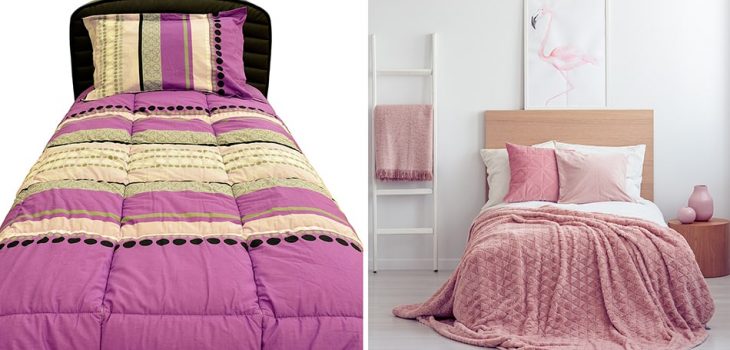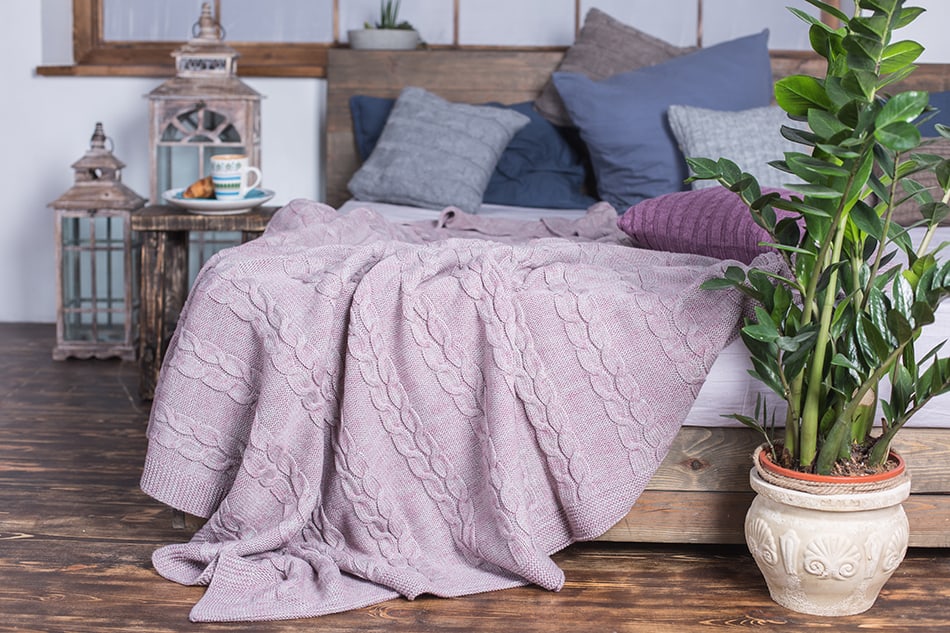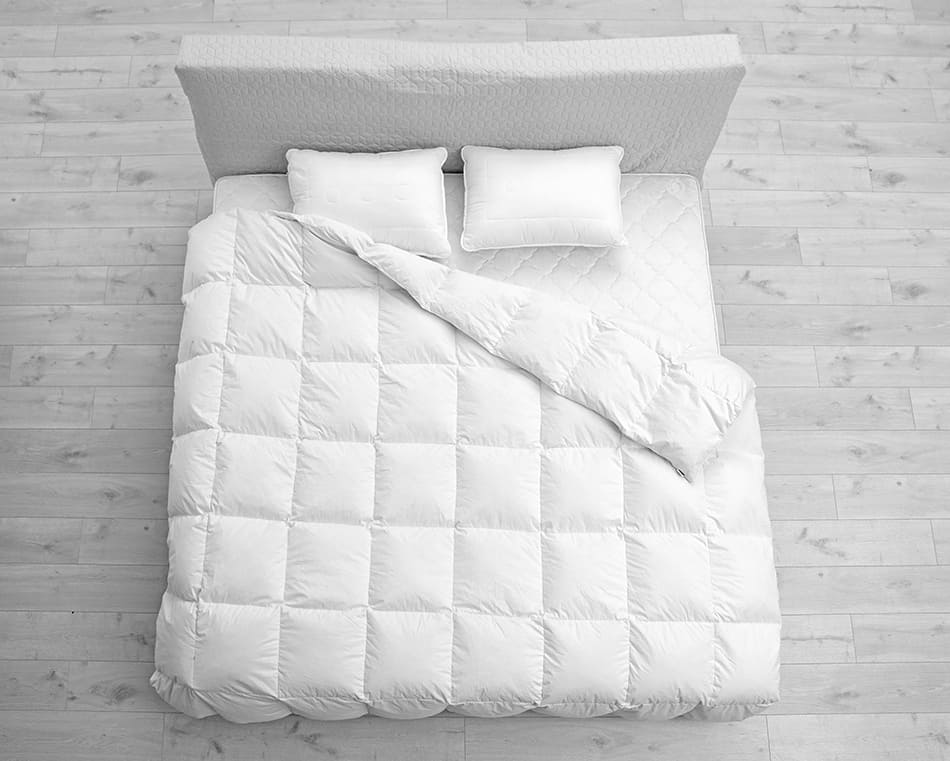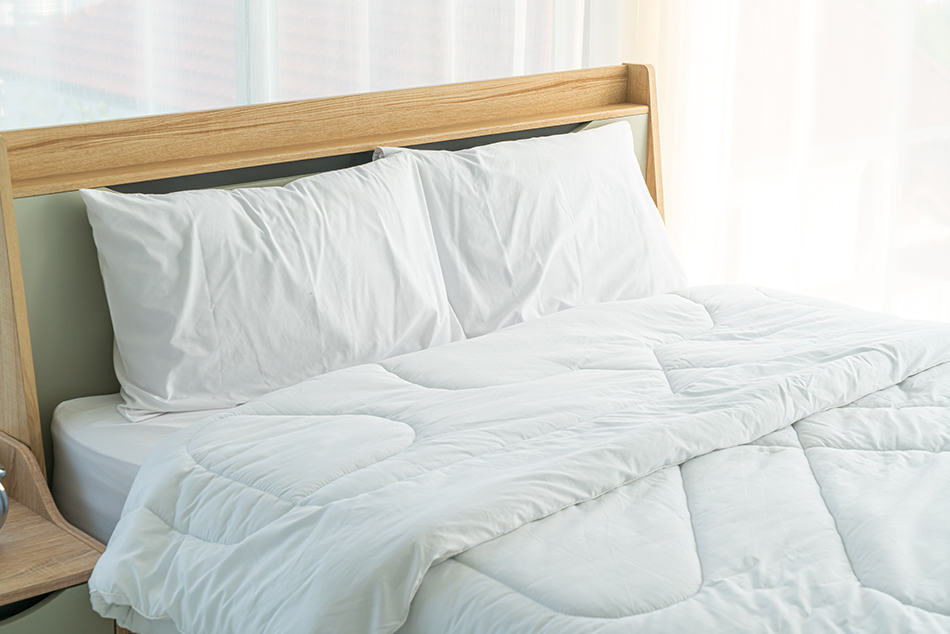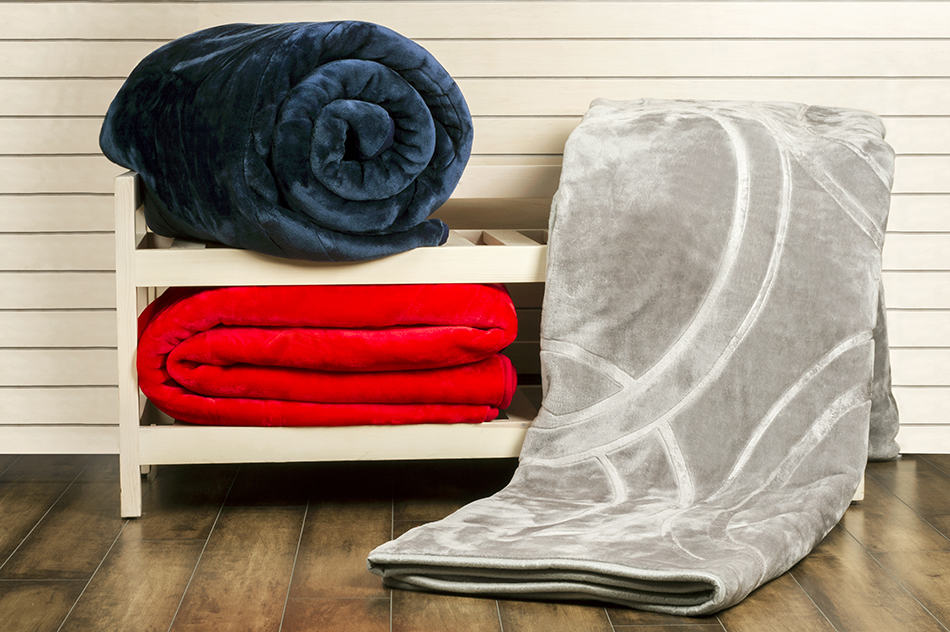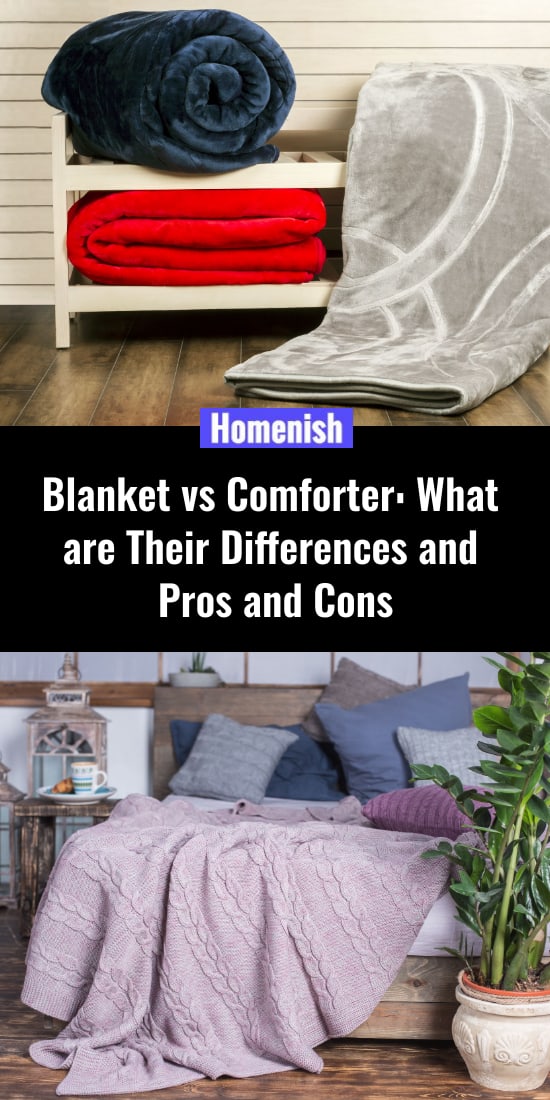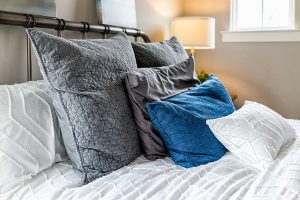We all need some kind of cover when sleeping in our beds during summer and winter. Blankets and comforters both offer warmth, but each one is intended for a specific use. While there is no right or wrong way when it comes to choosing your bedding, it does depend on your personal needs and preferences.
If you’re trying to decide between a comforter and a blanket, it’s best to learn a little about their advantages and disadvantages as well as the factors to consider when buying these bed coverings.
What is a Blanket?
A blanket is a generic term for bed covering. It consists of a single layer of fabric that’s made from cotton or wool, but you can also find luxurious blankets made from fleece. The word is derived from ‘blanc’, which means white in French.
This is because in the old days, blankets were typically white and made from undyed wool. While fleece is a great option for those who like using throw blankets on their sofas, wool is the preferred choice as it keeps you warm during colder weather.
Pros:
- Blankets are made from durable materials, such as wool, fleece, or cotton
- Since they are used as a bed covering, blankets are very comfortable to sleep on
- You can easily add a decorative cover to the blanket to match the rest of your bedding
- Blanket covers are available in various patterns and colors, so you can find one that fits your bedroom decor
- Easy to wash. Just throw it in the washing machine like a regular sheet
Cons
- Woolen blankets are expensive
- A blanket on its own looks as plain as the bed covering. You need to add a sheet cover to complete the look
- Inserting a cover is a hassle and often requires the help of a second person
- Finding the right size cover for the blanket can be difficult since covers are usually square-shaped, whereas most blankets are rectangular
What is a Comforter?
A comforter is a thick, fluffy type of duvet that keeps you warm in winter. It’s filled with natural fibers that include fur, feathers, wool, and silk. The best quality and most comfortable comforters are made from cotton outer shells with an insulated middle part to provide extra warmth.
Pros:
- Most comforters come with matching pillows and sheets as one set to make your bed presentable
- No need to look for a cover as the comforter can be used on its own
- Comforters can be used without a top bed cover
- You don’t have to wash them as often as blankets
Cons:
- A comforter makes the task of tidying up the bed time consuming
- The filled materials in the comforter may eventually go flat or wear down, thus resulting in having to find a replacement comforter. In case you can’t find a matching comforter, your bedding will look mismatched
- Some comforters aren’t machine washable so you’ll need to dry-clean them. This will be expensive in the long run, not to mention a hassle to pack
- To avoid washing or dry cleaning your comforter too often, it’s best to add a cover sheet. Note: large size cover sheets can be rather expensive
What are the Differences Between a Blanket and a Comforter?
Both comforters and blankets are used to keep you warm in bed during cooler weather, but there are some distinct differences between the two, which I will go into some detail below:
- While blankets can be used to keep you warm, they don’t have the same insulation properties as comforters, which only makes them suitable for spring, summer, and fall. They are, after all, made up of a single layer of fabric, whereas a comforter consists of two layers plus the insulation filling
- Comforters are larger than blankets and can be used as a bedspread. However, blankets can only be used as a top bed cover
- Blankets are woven, whereas comforters are made of stitched fabric
- Comforters are mainly used in winter because of their insulation. Sleeping under them during summer or fall can get uncomfortably hot
Comforter vs Blanket: Which is Better?
Comforters Provide More Warmth
Whether a comforter is filled with synthetic fibers, goose down, or other materials, there is no denying the fact that it offers more warmth than blankets. After all, a blanket is a single layer of fabric, whereas a comforter boasts a minimum of two outer layers as well as the insulating filling. Having said that, there are weighty blankets made from wool to keep you warm in winter. However, these blankets are very heavy and difficult to fold.
There are also electric blankets with internal wiring that can be plugged into an electric outlet. These blankets keep the surface of the bed warm, thus making them a good choice for those freezing winter nights. Although they are generally safe to use, some people don’t feel comfortable about the idea of sleeping under these blankets.
Comforters Can’t be Used on the Sofa
Since comforters are so bulky, they can’t be used on the sofa. Blankets make a much better choice for those who like to stay warm on the sofa while watching a movie.
Blankets Don’t Cause Allergies
The same filling material in a comforter that keeps you warm traps dust and provides a breeding ground for dust mites. People with allergy issues may experience irritation, such as runny nose, sneezing, or coughing after spending a night under a comforter.
Blankets, on the other hand, are made of woven cotton, which prevents dust particles from becoming trapped inside the fabric. If you live in an extremely cold climate and must use a comforter, make sure you place it inside a zippered cover to keep out dust mites.
Blankets are Easier to Store
The climate in summer requires the use of a different bed covering than in winter. As I said earlier, comforters are much bulkier than blankets because of their fillings so they can be difficult to fit inside the closet.
But with a simple fold, you can easily store a blanket without it taking up so much space in the closet. This is because blankets are much thinner, making it super easy to access them whenever you need to snuggle up on the sofa or anywhere else in your home.
Factors to Consider When Buying a Blanket
- Warmth and weight: when choosing a blanket, you must take into account the material’s warmth and weight. If you need a thick blanket, look for wool, fleece, or cashmere, as these are the warmest bedding.
- Size: while most blankets are available in a standard size, some are sold as per mattress sizes, so take the measurements of your mattress before buying a blanket.
- Color and pattern: a blanket can make a difference to your bedroom’s aesthetic. The color and pattern you choose will play a huge role, so think about whether you want the blanket to match or contrast your bedding and the rest of the bedroom’s interior.
- Care: most blankets are machine washable with a simple and straightforward cleaning process. But just to be on the safe side, always read the cleaning instructions before buying.
Factors to Consider When Buying a Comforter
- Bed size: finding a comforter that fits your bed isn’t an easy task. But rather than buying one that’s too small, take your bed’s measurements and opt for a larger comforter that drops down on the sides of the bed.
- Care: cleaning a comforter can be a hassle, especially if it’s not machine washable. To retain its freshness, air it regularly (twice a year). Make sure you shake the comforter often to prevent its down fillings from going flat. You should dry clean the comforter once per year before storing it away.
- Fillings: when it comes to comforters, there are two types of insulation fillings: natural and synthetic. The natural insulation filling consists of either goose or duck feathers. These allow your skin to breathe more easily than if you were to use a synthetic-filled comforter. Another plus point of down-filled comforters is their lightweightedness while ensuring you feel completely warm in cold temperatures. For those who like the feel of silk against their skin and are allergic to feathers and down, there is the silk-filled comforter with synthetic microfiber and hollow fiber fillings. This type of bedding can be washed regularly without its fillings going flat, unlike the naturally filled comforter.
Final Thoughts
When it comes to deciding between a blanket or comforter, the two can’t really be compared since they are used for different purposes. While comforters and blankets are both excellent choices for any bedroom, it comes down to how warm you want to feel and the climate you live in.
A blanket is the ideal choice for anyone who wants an easy-to-clean top bed cover, and a comforter is the perfect choice for those cold winter nights. No matter which one you choose, you can be sure of keeping warm and comfortable under these bed coverings.
